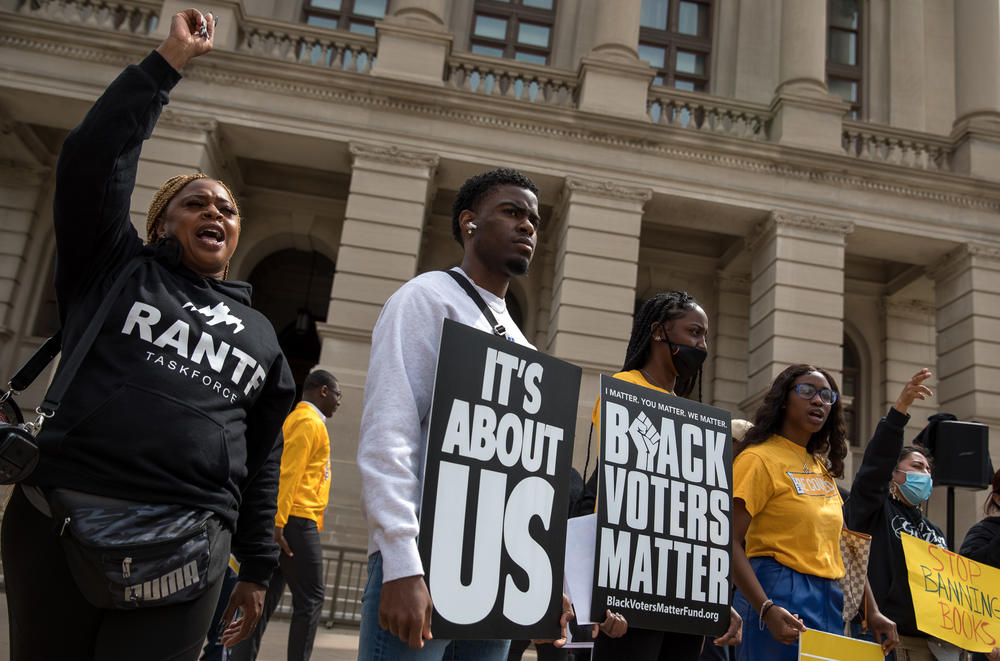
Caption
A group of protestors rally in front of the Georgia State Capitol on March 15, Crossover Day, against various GOP-backed bills including new a new voting measure and proposals that would limit conversations around race in classrooms.
Credit: Riley Bunch | GPB News



